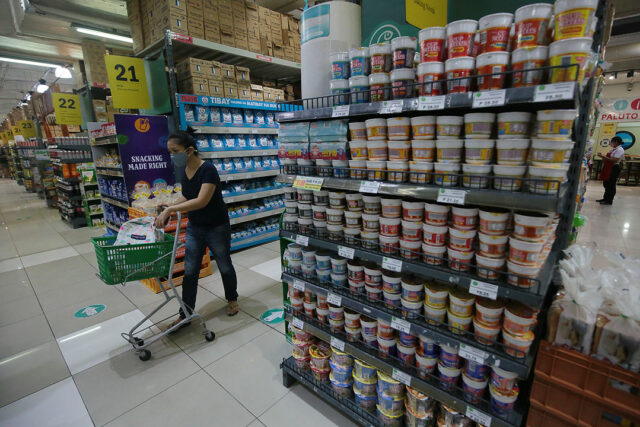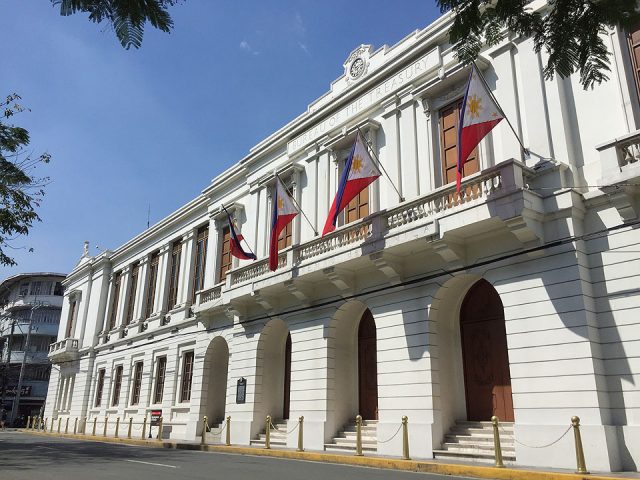By Kyle Aristophere T. Atienza, Reporter
The Philippines’ national security strategy should also protect strategic industries, political analysts said on Sunday, as the government resumes free trade talks.
Threats posed by global events such as foreign interventions and cyberattacks should also be considered in the country’s security planning, they added.
“In terms of national security, the contemporary conversation now is on human security at large,” said Hansley A. Juliano, a political economy researcher studying at Nagoya University’s Graduate School of International Development in Japan.
“Developing countries are being confronted with the question of how secure the quality of life of people really is,” he said in a Facebook Messenger chat.
Mr. Juliano said the coronavirus pandemic, climate change and other environmental challenges “already showed us how nontraditional threats to quality of life can cause greater damage than just mere external military invasion or insurgencies.”
Clarita A. Carlos, President Ferdinand R. Marcos, Jr.’s national security adviser, has said the government would veer away from the US concept of national security, which she said has a bias for the military perspective.
The previous government had been criticized for using militarist solutions to national problems, including the global pandemic.
National security should also focus on the “economic life” of the country, Ms. Carlos said last month. Access to food, energy and water should also be considered as a security concern, she added.
The Philippine Senate failed to ratify a free trade agreement involving Australia, China, Japan, South Korea, New Zealand and other Southeast Asian countries.
Senators did not approve the trade deal due to fears that it might damage the agriculture sector and other local industries. Aside from the Philippines, Indonesia and Myanmar also did not approve the trade.
Joseph Purugganan, program coordinator at the policy research group Focus on the Global South, said the Philippines must be prepared because there is “a geopolitical agenda” seeking to cement a free trade agreement landscape in Asia.
“All the big economies are pursuing their own trade and investment strategies using a host of bilateral, regional and international platforms and arrangements in order to advance their economic and security interests,” he said in an e-mail.
“Both the European Union and US are looking at Asia in developing their economic pivot strategies to counter China’s influence in the region and advance their own strategic interests.”
Mr. Purugganan said the government must build and strengthen its domestic economy and manufacturing capacity, while cutting its overdependence on global supply chains.
“Our economic resilience depends on strengthening our own capacities to withstand global and regional shocks,” he said. “While we should not retreat from international cooperation, our engagement should be driven more by this goal to strengthen the domestic economy rather than a more outward, export-oriented strategy.”
Mr. Marcos, 64, has committed to strengthen the country’s industries, vowing to boost local food production and limit imports as much as possible.
Mr. Purugganan said the government should identify the minerals key to the economic and national security of the Philippines and plan how they should be extracted, used locally and exported. “The big powers are doing that and so should developing countries like the Philippines.”
“Mega free trade agreements pry open our economies, including critical areas that impact food security, natural resource utilization, land ownership, energy and water,” he said. “Yet the government approaches these talks primarily through the lens of corporate interests.”
The experts said the country’s security plan should also consider how the open data market, which is controlled by private companies, poses threats to public security.
“The main currency of the global economy is not exactly material goods or finance anymore, but data,” Mr. Juliano said. “Any data and metadata being produced right now by the global economy is controlled, utilized and upcycled by big tech companies.”
“We are inevitably on the path to digitalization, which means that cyber-security must be a top national security priority,” said Michael Henry Ll. Yusingco, a policy analyst who used to worke with the Ateneo Policy Center.
‘BLUE ECONOMY’
“A lot of great things have been done on this front, but the goal should be for our country to be a leader in this field and not merely the recipient of aid from other nations.”
Mr. Yusingco said the country’s security planners should also consider the fact that the Philippines is an island nation. “This means securing our seas and protecting our maritime resources must be the top priority.”
He said the national security framework should also meet the demands of a blue economy paradigm, which calls for the sustainable use of ocean resources for economic growth.
“There is a vast pool of human resources that can be tapped for national security goals,” Mr. Yusingco said. “This means strategically utilizing this resource to make the country a maritime and cyber-security power.”
Academics have said the Philippines’ security management in relation to its foreign policy has been bogged down by political partisanship and the failure of administrations to involve nongovernment sectors.
Mr. Marcos has canceled China’s funding commitment for railway projects worth $4.9 billion after it failed to respond to the Philippine government’s loan application struck by ex-President Rodrigo R. Duterte.
Mr. Duterte had been criticized for gambling Philippine territories in exchange for investment pledges, most of which have never materialized into actual projects.
“The underpinning principle of the national security framework should always be to protect and defend our maritime resources,” Mr. Yusingco said.
 The series starts on Wednesday while Game Two on Friday.
The series starts on Wednesday while Game Two on Friday.












